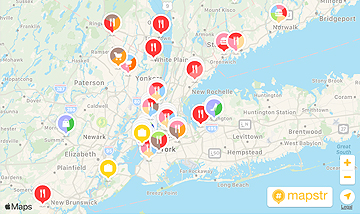
History
Published on November 21, 2007

| 58 BC - 481 AD | Roman conquest of Celtic Gaul. Gallo-Roman civilization. |
| 481-987 | Meovingian and Carolingian dynasties. Sweeping invasions from the east. Hugh Capet, elected King of France, founds the Capetian dynasty. |
| 11th-13th centuries | Development of agriculture and trade. Emergence of towns. Royal power gains ground over feudal lords. Economic and cultural role of the great monastic orders. Crusades. |
| 14th-15th centuries | Epidemics (Black Death, 1397), famine and civil wars. Rivalry between France and England: Hundred Years’ War, epic of Joan of Arc (1425-1431). Territorial alliances and reconstitution of the kingdom. Development of agriculture, the population and trade. First Italian wars and start of the Renaissance in France. |
| 16th century | The Reformation. Religious wars between Catholics and Protestants. Reign of Henry IV (1589-1610). Edict of Nantes grants freedom of conscience and worship (1598). |
| 1610-1715 | Reigns of Louis XIII and Louis XIV. Royal power at its peak; France dominates Europe, French culture spreads. Start of large-scale sea trade. |
| 18th century | Reigns of Louis XV and Louis XVI. Economic and demographic growth. Age of Enlightenment. Absolute monarchy challenged. |
| 1789-1799 | French Revolution. Declaration of the Rights of Man and the Citizen (26 August 1789). Abolition of the monarchy (1792). First Republic. Directory. Consulate. |
| 1799-1815 | Rise of Napoleon Bonaparte, First Consul, then Emperor of the French (1804). Establishment of modern administrative institutions, codification of the law. European wars lead to abdication of the Emperor. |
| 1815-1848 | Restoration and constitutional monarchy (Louis XVIII, Charles X). Revolution of 1830. Reign of Louis-Philippe. Economic prosperity. Rapid development of industrialization. First railways. First colonies established. |
| 1848-1852 | Revolution. Second Republic. First laws on labour, the press and education. |
| 1852-1870 | Coup d’Etat by Louis-Napoleon Bonaparte, nephew of Napoleon I. Second Empire. Political liberalization (1860). Period of strong growth and colonial expansion. |
| 1870-1875 | Franco-Prussian war resulting in the loss of Alsace and Lorraine and the fall of Napoleon III. Paris Commune (1871). Third Republic. |
| 1875-1914 | Parliamentary power at its peak. Recognition of trade unions. Separation of church and state (1905). Important scientific and technological inventions. |
| 1914-1918 | First World War. Allied victory. Alsace and Lorraine revert to France. Peace treaties. |
| 1919-1939 | Reconstruction. Paris attracts artists from all parts of the world. Great Depression. Popular Front (1936), development of social legislation. Tension rises in Europe. |
| 1939-1945 | Second World War. Defeat and occupation. General de Gaulle leads the Resistance from London and Algiers. Allied victory (8 May 1945). |
| 1946-1957 | Fourth Republic. Reconstruction. Demographic and economic growth. Decolonization. Founding of the European Communities (Treaty of Rome, 1957). |
| 1958-1968 | General de Gaulle returns to power. Constitution of the Fifth Republic adopted by referendum (28 September 1958). Common Market becomes a reality (1959). Signature of Evian Agreements ends war in Algeria (18 March 1962). Constitutional amendment introduces election of the President of the Republic by direct universal suffrage (referendum of 28 October 1962). General de Gaulle and Chancellor Adenauer sign Elysée Treaty establishing a framework for Franco-German rapprochement (23 January 1963). Economic growth. Social crisis (May 1968). |
| 1969-1981 | Georges Pompidou’s presidency (1969-1974). Economic development. Continued European construction (first attempt to coordinate currencies by setting up the "snake" on 10 April 1972, and expansion of the European Communities to include Denmark, Ireland and the United Kingdom on 1 January 1973). First oil shock (1973). Presidency of Valéry Giscard d’Estaing (1974-1981). Stages in European construction: European Council established (December 1974), first Lomé Convention signed (28 February 1975), European Monetary System - EMS - set up (1 January 1979), accession of Greece (1 January 1981). Right to vote at age 18 introduced. Abortion law promoted by Simone Veil is adopted (17 January 1975). Second oil shock (1979). Rise of inflation and unemployment. |
| 1981-1995 | Presidency of François Mitterrand (elected 1981, reelected 1988). Death penalty abolished (1981). Decentralization laws passed (1982). Rules governing radio and television stations are liberalized (1982).European construction progresses: Spain and Portugal join on 1 January 1986, the Single Act comes into effect on 1 July 1987, the Treaty on European Union (Treaty of Maastricht) is ratified by referendum (20 September 1992). |
| 1986-1988 | First cohabitation: The 1986 general election resulted in a parliamentary majority for the two main right-wing parties, RPR and UDF. Jacques Chirac is appointed Prime Minister by President François Mitterrand. This first cohabitation ended with François Mitterrand’s re-election in 1988. |
| 1993-1995 | Second cohabitation: Edouard Balladur is appointed Prime Minister by François Mitterrand after the 1993 General Election. This cohabitation ended with Jacques Chirac’s election as President of the Republic in 1995. |
| May 7, 1995 | Jacques Chirac is elected President of the Republic. Alain Juppé is appointed Prime Minister. |
| May-June 1997 | Dissolution of the National Assembly and General Elections resulting in a left-wing majority and thus the third cohabitation. Lionel Jospin is appointed Prime Minister. |
| October 2, 1997 | Signing of the Amsterdam Treaty. |
| January 1, 1999 | Beginning of the introduction of the euro. The exchange rates for 11 European currencies are permanently fixed relative to each other and relative to the euro. |
| September 24, 2000 | In a referendum, 73% of the French people voted in favor of shortening the presidential term from 7 to 5 years. The 5-year term will be effective after the presidential elections of 2002. |
| January 2, 2002 | Euro bills and coins are introduced. The euro now is used for all transactions in the 12 participating European Union countries (France, Belgium, Germany, Spain, Ireland, Italy, Luxemburg, the Netherlands, Austria, Portugal and Finland). |
| February 17, 2002 | French francs are no longer legal tender in France. |
| May 5, 2002 | Jacques Chirac is re-elected President of the Republic and appoints Jean-Pierre Raffarin as Prime Minister. It is the end of the third cohabitation. |
| May 29, 2005 | In a referendum, 54.68% of the French people rejects the Treaty establishing a Constitution for Europe. |
| May 6, 2007 | Nicolas Sarkozy is elected President of the Republic and appoints François Fillon as Prime Minister . |
| February 4, 2008 | The French Parliament ratifies the European Treaty of Lisbon. |
| May 6, 2012 | François Hollande was elected President of the Republic. |
| February 11, 2014 | French President François Hollande paid a State visit to the U.S. at the invitation of U.S. President Barack Obama. |

Related information: The Elysee Palace














